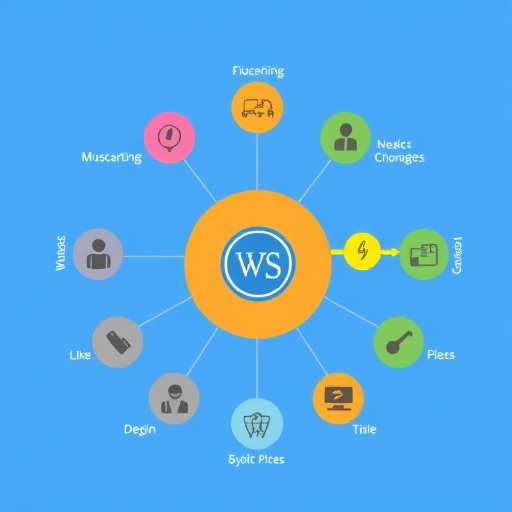Nursing is a profession that requires a multitude of skills, including technical knowledge, emotional intelligence, and the ability to provide holistic care. Recent studies have highlighted the importance of holistic nursing competence, especially when caring for older adults. A groundbreaking research effort by Jafari Rahim Abad, Saadati, and Ghaffari delves into the factors that predict holistic nursing competence in a sample of nurses dedicated to the elder population. This research, published in BMC Geriatrics, has far-reaching implications for nursing education and practice.
Holistic nursing is an approach that addresses the physical, emotional, social, and spiritual needs of patients. In a rapidly aging society, the necessity for nurses who are not only technically proficient but also capable of understanding the broader context of their patients’ lives becomes increasingly apparent. The findings of this study underscore the urgency with which healthcare systems must adapt to ensure that nurses are equipped to meet the challenges posed by a diverse elder population.
In the study, the researchers utilized a robust methodological framework to assess the determinants of holistic nursing competence among nurses. By surveying a sample of nurses who work specifically with older adults, they aimed to identify key factors that contribute to a higher level of holistic competence. The results could serve as a roadmap for developing tailored training programs that enhance the skills of nurses in this critical area of healthcare.
One of the primary findings of the study is that emotional intelligence plays a pivotal role in facilitating holistic nursing competence. Nurses who exhibit high emotional intelligence are better equipped to connect with their patients on a deeper level, which is essential for providing care that is not just effective but also empathetic. The ability to navigate complex emotional landscapes is especially important when caring for older adults, who may be facing multiple health challenges and emotional burdens.
Moreover, the research highlights the significance of continuous professional development in fostering holistic nursing skills. Nurses who engage in ongoing education and training opportunities are far more likely to demonstrate the competencies required to provide holistic care. This finding supports the need for healthcare organizations to invest in ongoing training programs that focus not only on clinical skills but also on the interpersonal aspects of nursing.
Another critical factor identified in the study involves the impact of workplace environment on holistic nursing competence. A supportive and collaborative workplace culture encourages nurses to share best practices, collaborate on care strategies, and collectively learn from experiences. Conversely, a stressful work environment can hinder the ability of nurses to provide comprehensive care. Implementing strategies to enhance the work culture is therefore essential in promoting holistic nursing practices.
The research also reveals that demographic variables, such as age, gender, and years of experience, can influence holistic nursing competence. For instance, more experienced nurses may possess a wealth of knowledge and intuition that newer nurses are still developing. However, younger nurses often bring fresh perspectives and innovative ideas that can also enhance holistic care delivery. Bridging the generational gap within nursing teams can thus create a more dynamic and effective approach to patient care.
As the elder population continues to grow, the implications of this research are manifold. Societal needs are transforming, and healthcare systems must evolve correspondingly. By focusing on holistic approaches in nursing education and practice, we can better serve the unique needs of older adults. The findings of Jafari Rahim Abad and colleagues emphasize that the future of nursing must prioritize comprehensive training models that prepare nurses to face the complexity of modern patient care.
In addition to emotional intelligence and workplace culture, the research underscores the role of interdisciplinary collaboration in enhancing holistic nursing competence. By working alongside other healthcare professionals such as social workers, physiotherapists, and geriatricians, nurses can develop a more integrated approach to patient care. This collaborative model ensures that all dimensions of an older adult’s wellbeing are addressed, ultimately improving health outcomes and patient satisfaction.
Furthermore, the study draws attention to the importance of patient-centered approaches in nursing practice. When nurses prioritize the values, preferences, and needs of their patients, they enhance the overall care experience. Listening to patients and involving them in decision-making processes fosters trust and respect, which are crucial elements in holistic nursing.
As this pioneering research points out, the implications for nursing education are substantial. Curriculums must evolve to encompass training in emotional intelligence, interdisciplinary collaboration, and patient-centered care. By equipping future nurses with these essential skills, we can ensure that they are prepared to meet the challenges of caring for older adults effectively and compassionately.
In conclusion, the groundbreaking research conducted by Jafari Rahim Abad, Saadati, and Ghaffari illuminates the critical factors that predict holistic nursing competence. By focusing on emotional intelligence, supportive workplaces, continuous training, and collaborative care, the nursing profession can significantly enhance the quality of care for older adults. As we move forward, it is imperative that we take actionable steps to implement these findings in practice and education, ensuring that nurses are prepared to provide the comprehensive care that older adults so profoundly deserve.
The future of nursing hinges on our ability to adapt and innovate, embracing holistic approaches that address the multifaceted needs of an aging population. The insights garnered from this research not only highlight the current requirements for nursing competence but also pave the way for a more responsive and compassionate healthcare system tailored to the needs of older adults.
Subject of Research: Holistic nursing competence factors in nurses caring for older adults.
Article Title: Factors predicting holistic nursing competence in a sample of nurses caring for older adults.
Article References:
Jafari Rahim Abad, Y., Saadati, K. & Ghaffari, F. Factors predicting holistic nursing competence in a sample of nurses caring for older adults. BMC Geriatr 25, 906 (2025). https://doi.org/10.1186/s12877-025-06617-x
Image Credits: AI Generated
DOI: https://doi.org/10.1186/s12877-025-06617-x
Keywords: Holistic nursing, emotional intelligence, nursing competence, elder care, interdisciplinary collaboration, patient-centered care.




